Here’s Basudeb’s in-depth review of the International Anthology of Poems on Autism, edited by Arindam Roy and others, featuring 62 poems by poets from 12 nations. An exclusive for Different Truths.
International Anthology of Poems on Autism, Eds. Arindam Roy, Luz Maria Lopez, Michele Baron, Yuri Zambrano, Tzemin Ition Tsai, Verginia Jasmin Pasalo and Anumita Chatterjee Roy, Allahabad: Different Truths Publications, 2019. 108pp, Rs 275/-, $10.00
Traditionally, Autism is considered an unfortunate social stigma. It is not a fact that Autistic children are dull, insensitive and blunt. There are many Autistic children who excel in one or another area or human knowledge. Some Autistic children can sing beautiful songs or some are found very talented in painting or sculpture. Some are poets. It will be dangerously wrong to bracket them with schizophrenic patients. Unfortunately, this is very often done in our country.
Naturally for proper grooming of Autistic children there should be different and special teaching and learning programmes unlike the programmes in regular school system. It is found that the range of Autism results in a person to create cyclic behavioural patterns and often affects their social communication with other members of the society.
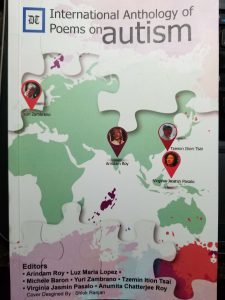
Naturally for proper grooming of Autistic children there should be different and special teaching and learning programmes unlike the programmes in regular school system. It is found that the range of Autism results in a person to create cyclic behavioural patterns and often affects their social communication with other members of the society. Symptoms of Autistic children are expressed in a various way. Let me refer to two examples of some symptoms (1) very meticulous in taking bath under the shower, (2) unwillingness to make eye contact, while talking to his / her friend.
A major misconception about Autistic children, at least in India, if not in Western countries, is that Autistic children are mentally retarded or partially insane. This idea is absolutely untrue and highly prejudiced. This Autism Spectrum Disorder (ASD) is probably related to some disorder of human genes. Owing to some uncommon character of genes, ASD sometimes creates some irregularities in an Autistic child’s brain – the irregularities may tell upon his physical action or speech pattern or any physical movement or expression that is not ordinarily acceptable in social behaviour.
The most difficult area in ASD is that different children respond differently to different external stimuli. There is no definite number of common set of symptoms. But undoubtedly this uncommon behaviour pattern, under no circumstances, tantamount to madness or insanity.
The most difficult area in ASD is that different children respond differently to different external stimuli. There is no definite number of common set of symptoms. But undoubtedly this uncommon behaviour pattern, under no circumstances, tantamount to madness or insanity. It is also commonly believed that some children inherit this ASD. Modern researches need to be funded more and more in this domain. The role of the government in every country is very important in this regard. The governments should come forward globally and fund generously researches on Autism.
The uncommon behaviour of Autistic children may often create some problems to the grown-up people, who with their set or preconceived notion about Autism try to humiliate or offend them by laughter or sadistic comment or taunt in any form. Actually, Autistic children are primarily lonely. They always feel that they are always isolated from the society. They are in dire need of love, respect and affection. Not that they are insensitive or a human being without sense and sensibility. They are like all human beings but they show certain traits in their social behaviour when their genetic order is disturbed for reasons unknown till date. For Autistic children, therefore, a separate school system should be considered. In India today some insignificant or very small projects have been undertaken.
The anthology of poems that I have received for this review article is an awareness poetry, an advocacy on Autism.
The anthology of poems that I have received for this review article is an awareness poetry, an advocacy on Autism. The introducing poem of this anthology, titled ‘Worries of the Jungle’, written by Sherin Mary Zacharia, is an artistic attempt to make readers aware of the predicament of those autistic children who in our society are deprived of their own spaces. The poet in the third line of the first stanza pinpoints that ‘every life is important’. Here every life includes both autistic and non-autistic human beings. The poet has artistically exploited the ‘forest image’ in the third stanza of the poem.
Anumita Chatterjee Roy in her poem, ‘A Different Way of Life’ shows men’s ways living is not monolithic, unitary and single. Different men have different ways of life. Different people lead their lives differently. Our life is multi-directional. Autism is a particular way of life.
Jernail S Anand’s poem entitled, ‘The Forbidden Dream’ is autobiography of an Autistic child, who thinks that he is a challenge to himself, and particularly to the normal world. The poem is a lamentation of an Autistic child, because he does not think that he is in any way less or inferior to a soul of any person. He suffers because his parents suffer and weep for him. He isolates himself from the rest of the world. His friends look at him differently. But in the last two lines of the poem the child consoles himself and tries to stand on his own strength.
The established fact is that Autism is not unnatural; it is only special in some ways and common people think mistakenly that Autistic child is abnormal and unnatural. An Autistic child necessitates special treatment in his family and the society, to which he belongs, because they in most cases are gifted, often they are creative.
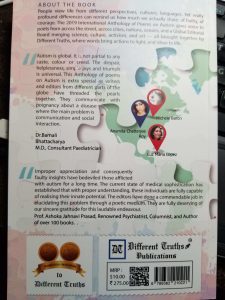
The established fact is that Autism is not unnatural; it is only special in some ways and common people think mistakenly that Autistic child is abnormal and unnatural. An Autistic child necessitates special treatment in his family and the society, to which he belongs, because they in most cases are gifted, often they are creative. An Autistic child who is a master of one musical instrument, Violin, can be under no circumstances insane or abnormal. An American poet, Ann Saxton, who was not Autistic but who chronically suffered psychological depression and often disorder was advised by her doctors to write poetry, simply because writing poetry was a mental therapy to her.
LSR Prasad’s ‘The Lyre with Slow Lyrics’ is brilliant, for the Meta meaning of Autism is precisely and exactly de-automatized by a series of images, particularly in the last stanza that begins with “Autistic lyre lives in its own world space…” The cerebral appeal of Prasad’s poem is of lasting impact on readers’ mind.
Jaya Kapoor’s poem, ‘Friends’ is a revelation of the narrator’s very personal and poignant attachment to an Autistic child. The narrator’s observation of the Autistic child is of close distance.
Jaya Kapoor’s poem, ‘Friends’ is a revelation of the narrator’s very personal and poignant attachment to an Autistic child. The narrator’s observation of the Autistic child is of close distance. The poem delineates intimately how an autistic child feels the pangs of alienation from the society to which the child belongs. Everybody leaves him; the child laments, “Why do all my friends leave?” An Autistic child is a pathetic victim of our society. The concluding lines in the last stanza, “His list of friends was small, / Just the therapist, maid and driver” is heart piercing.
The poem, ‘Border’, written by Alicja Maria Kuberska, seems to be complex in the texture of the feeling of the poem. The first stanza describes how the friendly nature and an Autistic child, living “in a closed cube block, in an always empty and quiet space” are contacted with each other, though ‘A soundproof glass separates’ the child from the rest of the world. But the child has created a world of his own, there he paints and he establishes his trace or his identity. The poem is an artistic overview of a private world of an Autistic child.
‘Two Poems’ written by Patricia Temple, is a delicate gem of poetry. The lamentation of the child presented in this short lyric is loudly heard while reading this poem.
‘Two Poems’ written by Patricia Temple, is a delicate gem of poetry. The lamentation of the child presented in this short lyric is loudly heard while reading this poem. Some key words like ‘wall’, ‘football’, ‘leg’, ‘corner’, and ‘rod’ foreground the kernel of the poem morphologically.
Paramita Mukherjee Mullick’s poem, ‘Special in Your Eyes’ is a confessional poem. The child asks his mother why he cannot do what he wants to do. The child is confused; he is only special to his mother. To him, his mother is his only refuge and solace. No one is ready to accept him as someone special except his mother. One of the unique features of this poem is that the child asks questions to his mother from the beginning to the end in this poem. Instead of interrogative sentence, the poet employs assertive sentences. The questions are embedded into the assertive sentences.
‘The Cry’, written by Lopamudra Mishra delineates how an Autistic child is determined to reach his destination by cracking the net of imperfection. The first-person narrator in this poem is aware of his imperfection.
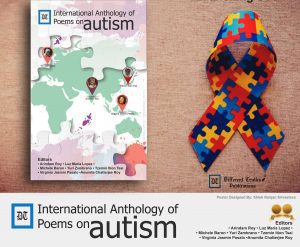
The poem, ‘Let me Bloom’ by Raj Babu Gandham, is a presentation of a child’s prayer to all persons around him only to accept him with all their understanding and compassion
The poem, ‘Let me Bloom’ by Raj Babu Gandham, is a presentation of a child’s prayer to all persons around him only to accept him with all their understanding and compassion, simply because, he is not as quick as many others are; he is different and slow in his actions and he is fully aware of what he is. He wants a special treatment, though he knows well his limitation. One of the artistries of this short poem is the poet’s felicity of expression and economy of words.
The poem, ‘He Doodled like a Maestro!’, written by Monika Ajay Kaul describes how a ten-year Autistic child used to meekly smile. The child was lonely in the school. His comfort zone was someplace, where nobody could see her. Throughout the poem the poet’s affection, love and encouragement has been manifest.
The last two poems, ‘Walls of Time’ by Luz Maria Lopez and ‘Unemployed’ by Marian Eikelhof are eye arresting because of the strength and vigour in the voice of the narrators. The introducing metaphor in the last line of the first stanza, ‘Walls of Time’ is the keynote tone of protest and empowerment of the narrator in this poem.
The last two poems, ‘Walls of Time’ by Luz Maria Lopez and ‘Unemployed’ by Marian Eikelhof are eye arresting because of the strength and vigour in the voice of the narrators. The introducing metaphor in the last line of the first stanza, ‘Walls of Time’ is the keynote tone of protest and empowerment of the narrator in this poem. The metaphor in the sixth stanza, ‘shell’ which is outwardly hard but inwardly soft, because the soul in it chirps is complementary to the ‘Wall of time’. These two metaphors excel the spirited voice against anybody who will try ‘to break apart’ the shell. The last poem in this anthology, who seems to me a Poet-activist, is a vindication of the rights of a person who may be lacking something in his social appearance but who is very much aware of what he is in need of doing. He is bold enough to be fired from the society but he is sure to get back his identity which has been hijacked by others of ‘elitist attitude’. He is determined to break all hindrances to reach his destination.
The main objective of this International Anthology of Poems on Autism has been appropriately revealed first through the selection of poems for this theme-based book of poems. Second, almost all the poems directly or indirectly aim at growing the awareness of the fact that Autistic are in need in special care not at family and school but also in every corner of the society. And the most interesting thing found is that autistic persons are extraordinarily brilliant in a certain human faculty. Third, some poets in this anthology transmute their social concerns through certain symbols, avoiding usually abstract and often vague ideas on Autism. This anthology of poems, I believe, successfully rearticulates the awareness of the problems of Autism and the need for the special treatment for those gifted persons. This anthology’s contribution through poetry to our perception of socially unattended issue, unfortunately still persisting, is quite modest.
Photo of the Cover from the Publisher

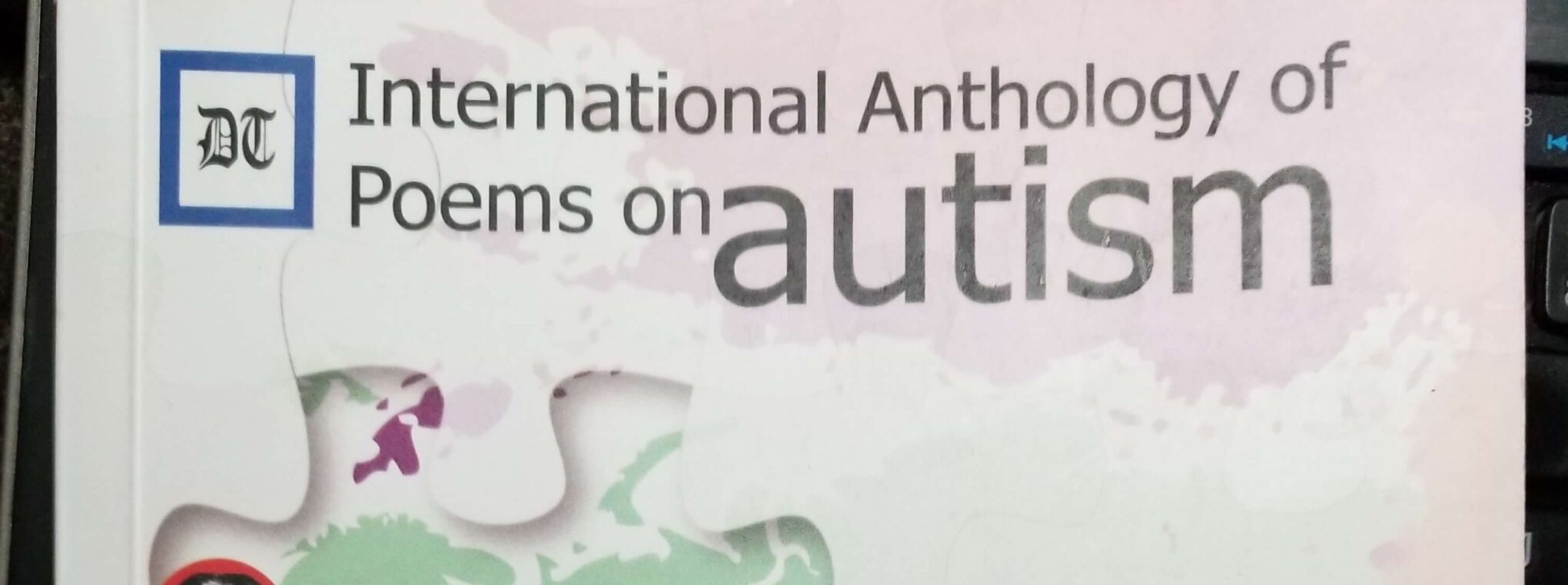

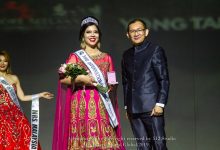
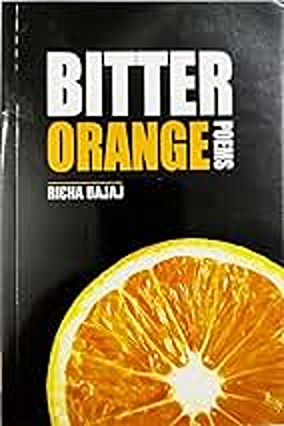
 By
By
 By
By
 By
By
 By
By